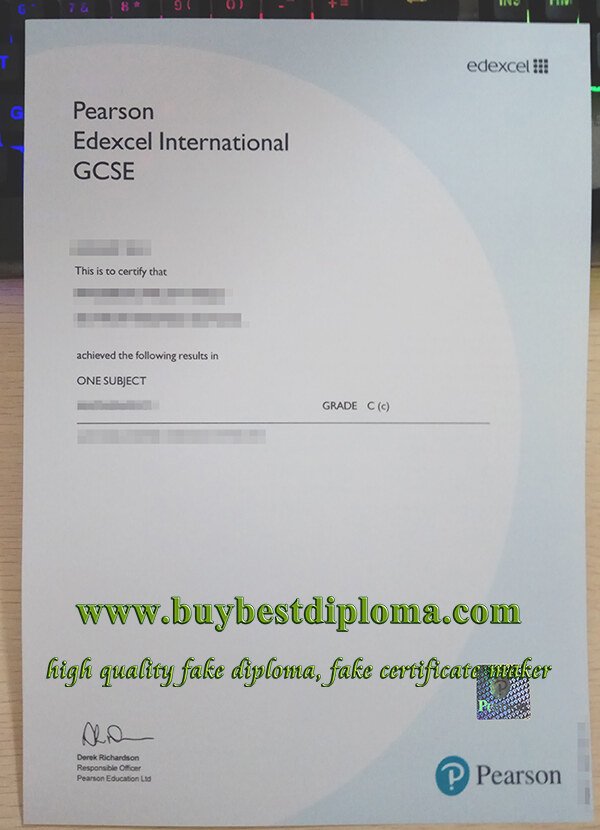
Order a fake Pearson GCSE certificate, buy a fake Edexcel GCSE certificate, fake International GCSE certificate, buy a GCSE certificate. GCSE examinations are taken by most pupils at the end of compulsory school education (year 11)in England, Wales and Northern Ireland. GCSE provides a uniform framework for assessment, with all candidates in all subjects graded from A* to G (with U being the result given to those whose papers are “ungraded”). Scotland has a different system altogether, with examinations called Standard grades, Higher grades and Advanced Higher grades, which are taken at different ages. Taking GCSEs is not compulsory, and it is up to schools whether to enter pupils for examinations.
There are around 50 different GCSE subjects, alongside 14 Vocational GCSEs which have recently been introduced to replace Part 1 GNVQs (General National Vocational Qualifications). Each GCSE subject is assessed by formal examinations or by coursework, or by a combination of the two.
GCSE represents Key Stage 4 of the National Curriculum, and although GCSE provides a uniform framework of assessment, in fact it represents two “levels” of the National Qualifications Framework (Levels 1 and 2). Grades A to C are Level 2 (intermediate) qualifications, while grades D to G are Level 1 (foundation) qualifications. Order a fake Pearson GCSE certificate, buy a fake Edexcel GCSE certificate, fake International GCSE certificate, buy a GCSE certificate.
Where can I Buy A Fake Pearson Edexcel International GCSE certificate online
Depending on their expected grades, pupils in certain subjects will be entered for the “higher” or the “foundation” tier GCSE exams. Pupils expected to achieve grades A to D take the higher tier and can achieve any grade; pupils taking the foundation tier can only achieve grade C or below. Most subjects have these two tiers, but some (art, music, physical education and history) have none, while mathematics has three.
GCSE syllabuses are set, examinations administered and certificates awarded by five “awarding bodies” or Examination Boards: AQA, CCEA; Edexcel; OCR; WJEC. The exam boards are overseen by three regulatory authorities: in England – Ofqual (Office of the Qualifications and Examinations Regulator); in Wales – DCELLS (Department for Children, Education, Lifelong Learning and Skills; in Northern Ireland:CCEA (Council for the Curriculum, Examinations and Assessments).
The awarding bodies decide on a “Common Timetable” each year, so as to co-ordinate the scheduling of examinations. The Common Timetable usually runs from late May to late June each year. Arrangements for resits are made individually by each body.

